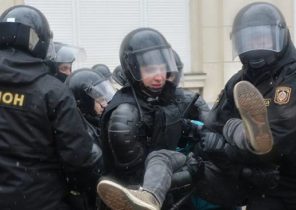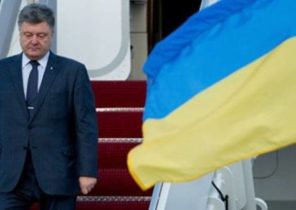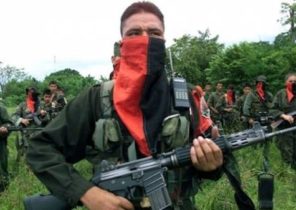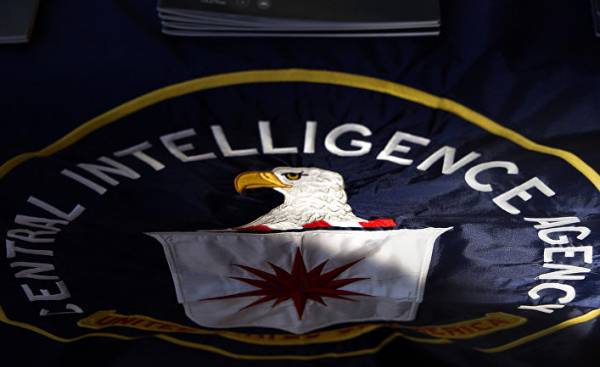
Sea island, Florida — officers of the Russian intelligence took us for spies of the Moscow hotel “Metropol” and took them to a luxury guest house located a few blocks from him. The building belonged to a rich Jewish dentist, but then it was turned into a meeting place for members of the Russian intelligence services.
This 17th-century estate served as the venue of the summit of CIA officers, FBI agents and their Russian colleagues when the Bush administration tried to build relations of cooperation with Moscow in combating terrorism.
Over glasses of brandy, and sometimes icy vodka, the agents of the Russian and American intelligence were sitting opposite each other at a long table at the event, which was supposed to facilitate relations, but instead turned into an interrogation. The Russians are probing the Americans to figure out where their sources are, how extensive are their networks and do they have any weaknesses, which you can later use.
“It was worse than checking on a polygraph, — said one former high-ranking officer. Different people asked us the same questions again and again, each time stating them a little differently — as if to check that we are lying or not.”
That meeting became a kind of symbol of 20 years of the Americans of trying to mend relations with Moscow: the new US administration, initially configured very optimistic, looking for ways to cooperate, and the Russians take every opportunity to collect as much data as possible on your opponent to realize their interests.
“We, the U.S. are their main enemy, said former CIA officer John Cypher (John Sipher). — From their point of view, they are waging a war against us. Everything that hurts America, brings the benefit of Russia”. And it is multiplied by two in the case of Russian President Vladimir Putin, who in the past headed the FSB.
It is to this cautionary tale CIA veteran hoping to attract the attention of the President of Donald trump and his closest advisers in the White house, which feared the veterans still expect to create an Alliance with Russia, despite all the warnings of the Pentagon Jim Mattis (Jim Mattis) and other senior officials of the national security apparatus.
During the conference, Cipher Brief in Florida a half-dozen former intelligence officials agreed to give an interview with the Daily Beast and former CIA officers spoke about their interactions with the Russians during the reign of the Clinton administration, Bush and Obama.
They all describe the same concept: the United States cooperate with Moscow in solving such complex problems as, for example, the fight against terrorism, and the Russians go first to meet them. But a few months later the US find that their cooperation all too short-lived and involves a variety of different conditions. In that moment, when between the parties arises any disagreement- for example, Ukraine or Syria — all Americans have shared with the Russian instantly transformed into a weapon that the Russians used against them.
“The Russians had established a sort of cooperation in the field of counter-terrorism on the principle of “quid Pro quo”, but later tore it due to any actions or decisions of Americans,” said Steve Hall (Steve Hall), the former head of Russian operations at the CIA, who left his post in 2015.
When relationships crumble, officials of the counter-terrorism agencies, who had previously visited Moscow and were forced to rarity to the Russian their names, got into the Russian list of wanted terrorists, after which they started having problems at airports of Russia-friendly countries, where they are often interrogated and intimidated. And not only so officials American law enforcement and intelligence services, paid for over-reliance on Russia.
“Or they were gathered by our experts on the fight against terrorism in one place and started to process them, said Hall, adding that Russians used the information they gathered at the various meetings to force the Americans to spy in favour of Russia. The Russians were trying to find weaknesses: do they love to drink, whether they need money, whether they support Russia? Any information that you can use to gain influence over a person and make it work for them.”
Trump said his desire to improve relations with Putin, trying to flatter him during the election campaign and in the early days of his presidential term.
“I respect him, but I respect a lot of people. This does not mean that I will be able to get along with him,” said trump in an interview with the host of Fox News channel bill O’reilly (Bill O’reilly) in February. When the now dismissed O’reilly called Putin a “murderer”, trump replied: “the Killers a lot. We also have a lot of murderers. Or do you think that our country was so innocent?”
Over time, the mood of the tramp has become more combative, especially after Putin has denied that his Syrian ally Bashar al-Assad has used sarin against its own people — in this step the Syrian leader, trump said a strike with cruise missiles. However, some advisers trump was considering the possibility to lift sanctions against Moscow, despite the fact that now the attitude of some members of the administration trump is being investigated in connection with their alleged collusion with Russia during the election campaign.
“Every time there is a new President, a new Director of the CIA, there is this idea: we can improve relations with Russia, — said Hall. — However, this almost never works. Russian every time we use”.
The former Director of clandestine services of the CIA, Michael Salik (Michael Sulick) said he was “skeptical” refers to the hopes of a thaw in relations with Russia and reminded that Putin said, when trump was elected. “The first words of Putin’s congratulations was: “I Hope we can establish relations, and the United States will be able to correct past mistakes”,” said Salik during the interview. Before he also headed the counterintelligence of the CIA, and he wrote about the long struggle against the Americans, which the Russian was forced to conduct surveillance in favor of Moscow. “In other words, all the concessions had to come from us, and that we have made all the mistakes”, — he concluded.
The reign of Clinton
“After the fall of the Berlin wall, Russians were all extremely nice and complacent,” said Jim Woolsey (Jim Woolsey), Recalling his first meetings with Russian officials, which took place before he became head of the CIA during the administration of President bill Clinton. Wolsey personally watched the evolution from original warmer Russian attitude to the United States after the collapse of the Soviet Union in 1991 and the burst of optimism following the election of President Boris Yeltsin.
In 1993 when the US President was Clinton, the relationship was “moderately warm, but they have appeared cooling,” said Woolsey. In 1994 was created the FSB, which became the successor to the Soviet KGB. However, the former worldview characteristic of the KGB, quickly migrated to the new service, and by the mid 1990-ies, according to Woolsey, he returned to Russia sentiment, characteristic of the cold war.
By the time when Yeltsin resigned and appointed Putin acting President, this transformation has been completed.
“Russian always interfering,” said Woolsey, who for some time was an adviser to the campaign headquarters trump.
September 11 and new hopes
The Bush administration also initially pinned their hopes on the establishment of relations, and it also was characterized by a slightly arrogant conviction that she will succeed much better than its predecessor. Officials of the Bush administration saw an excellent opportunity to do so, when Putin was one of the first has offered its assistance in the fight against Taliban and “al Qaeda” (the terrorist organization banned in Russia — approx. ed.) after the terrorist attacks in new York and Washington on 11 September.
“A purely American many people who daily did not communicate with the Russian, suddenly decided that we can be natural allies, said the former CIA officer Cypher. But those of us who for years have been dealing with Russia, cringed, because Russia is a kind of police state, a kind of extended version of” American spies and diplomats who were in Russia were under constant surveillance and was constantly under attack.
However, Russia has provided the necessary assistance, said Robert Dannenberg, another senior CIA officer.
“That’s the Way you picked up the phone and called Bush, saying that they knew nothing about the impending attack, and that in any case they will help us,’ said Dannenberg. — A few days later at Langley, the team arrived officials of the Russian intelligence services”.
“It became clear that the information they have was not much, as we thought, and that she was either outdated or useless” — despite a long military occupation of Afghanistan.
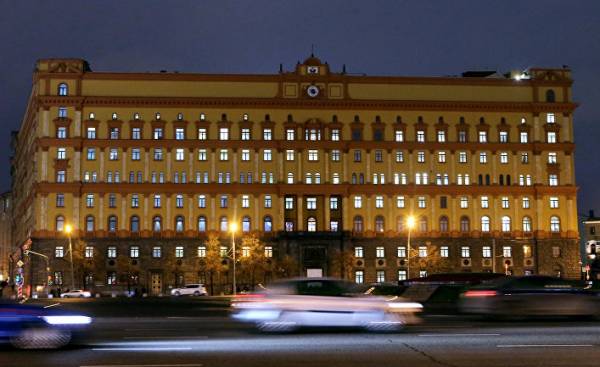 © RIA Novosti Vitaliy Belousov | go to photobacteria FSB
© RIA Novosti Vitaliy Belousov | go to photobacteria FSB
But American officials still went to Moscow in the same manor, located just outside the walls of the Kremlin — to the summit with representatives of the FSB and SVR.
“The meeting started at about 9 am in the living room, where before meeting all the guests were served glasses of cognac, recalled one former officer of intelligence services. — Then the participants moved to a larger room, where members of both the delegation sat opposite each other at the long table, on which stood tea and mineral water.”
Former intelligence officials asked us to keep their names in secret, describing a game of cat-and-mouse with Russian opponents.
“In between we have filed a cognac,” and all drank the obligatory glass of vodka for a luxurious lunch, uttering high-sounding toasts and competing with each other in eloquence.
In the evening the Russians took their American guests to the circus or the ballet. The cars of the Russian security services, in which sat the Russian and American agents traveled to Moscow accompanied by police cars with sirens. They were followed by the cars, which were agents, spied them. These machines are usually blend in with the General flow and imperceptible, but at that time they were so clearly visible that the situation has acquired a somewhat comical connotation.
According to Dannenberg, despite the warm welcome and generous treats, the result of the meeting was only short-term cooperation. The Russians were interested not only in the “global war on terror”, as they called it, the Bush administration as “the global war on Chechnya”, where Russia has for many years waged a bloody struggle against the Muslim separatists.
“Where our views on the war on terror coincide, the Russians willingly cooperated because it was in their interest, he said. But when we asked them to provide us with information about the cell of “al-Qaeda”(banned in Russia, ed) in Jakarta, for example, we ran into a brick wall”.
However, Russian is still provided practical logistical support, including provided access to Russian airspace, which helped US to transfer hundreds of agents and military personnel in the country in which they have not worked for many years.
“We would not be able to work in Afghanistan, if the Russians hadn’t agreed to cooperate with us in the beginning, he said. They supported us”.
Meeting in Moscow in 2007 was another attempt to establish cooperation in the field of combating terrorism after September 11, as al-Qaida in Iraq turned into a deadly new threat, and al Qaeda in Afghanistan has gradually recovered after the first shock of the United States.
American officials again went to Moscow, where they were taken from a luxury hotel “Metropol” and brought in even more luxurious guest house, where they met with representatives of the Russian intelligence.
“From the very beginning it became clear that our Russian interlocutors focused on completely different objectives, — said one of the CIA officers who took part in the meeting. — We are interested in cooperation in a purely American style, and we were ready to cooperate even with our enemy in the common struggle with a strong enemy.” Ultimately, this could result in the exchange of intelligence and information about the terrorists, if the other side agreed to it. But the Russians did not agree.
“They saw this as a great opportunity to gather a lot of data about the plans and intentions of America in its struggle with terrorists,’ said the former agent. The Russians were trying to figure out what we know, what we don’t know from what sources we get information and how. They wanted us to share intelligence and contact information.”
For four and a half days, various Russian officials generously fed and watered them tea and alcohol, trying different ways to get to them in confidence.
“The same questions were asked on different days by different people — they were just worded a little differently each time, — said the official. — It was like an investigation, in which the Russians have been trying to figure out honestly whether we answer their questions or not.”
The Americans were disappointed with the results of that meeting.
A few months later, the Russian delegation arrived in Washington, where he again tried to achieve his goal.
The Russians insisted on the meeting in the building of the Russian Embassy, which is technically Russian sovereign territory and which is located in the heart of Glover Park. Quite a motley group of spies and officers of law enforcement agencies met in a luxurious Embassy building, where each room is decorated and furnished to represent a specific part of Russia.
According to a former official of the American intelligence, the Americans again subjected to aggressive interrogation of the Russian.
“It all comes down to influence, manipulation or intimidation. Typically, he said. They wanted to establish relations “boss-subordinate””.
“No, thank you,” he said, summing up the impressions of the American delegation. And again the Americans were left with nothing.
“Honestly, we didn’t see any advantage in such cooperation, said former CIA Director General Michael Hayden (Michael Hayden), who headed the Agency during that period. — There is the concept of duty to warn, therefore, if we received information that, in our opinion, could help Russia protect its citizens, of course, we would hand it to the Russians”.
But soon after attempts to establish Russian-American relations, launched in 2007, Russia suddenly invaded Georgia.
The level of distrust was so high that when one delegate of Russian intelligence arrived in Washington, Hayden struck the 20-minute courtesy visit to the headquarters of the CIA, “after he left, we immediately checked the office” for the presence of eavesdropping devices.
Obama also received a hard lesson
The Obama administration has passed this sad way a few times. Agreement, which at first seemed successful, over time, led to somewhat different results, or were unrealized — remember the agreement on the transfer of Syrian leader Bashar al-Assad of weapons of mass destruction.
The Obama administration has for several years negotiated with the Russian experts on nuclear weapons, with the result that in 2013 the agreement was concluded. But then Russia invaded the Ukraine and seized the Crimea, destroying the hopes of those who believed that this agreement marked a new phase in relations with Moscow.
Even worse, we now know that Assad has kept some of the weapons and production capacity according to us officials, the Russian military advisers, must have been well aware of this, although they all deny it. Russian military are the military air base, which raised Syrian planes with sarin, which was used in the attack on Idlib in April. This step of the Syrian government forced trump to produce cruise missiles on this basis and revise plans for the establishment of warm relations with Russia in the near future.
“I never met a Russian. It’s not worth it,” said Michael Morrell (Michael Morell), former acting Director of the CIA under the Obama administration. According to him, they want the United States treated them as equals — many countries want to achieve, by increasing its influence at the expense of their economies.
“But they have nothing, explained Morrell. — Their economy is in terrible condition. The demographic situation is catastrophic. Their policy is also a disaster. So they are trying to hurt us wherever they can.”

